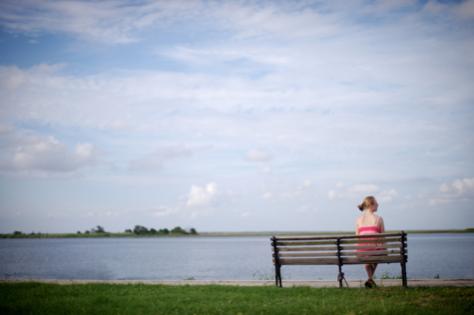Every home has seen its share of grief. Ours has had griefs large and small. And some small griefs feel large.
My 5-year old lost her first love last week. In the form a strapping 6-year old boy, Tor, who is returning to his home country of Sweden. Sweetly, she requested we take a photo so that she could put it in a frame. She sobbed on the way home from their last playdate. Then in my arms, the huge racking sobs of a little one, you know where you can almost feel the lungs gasping in the chest. We had rare night visitations for cuddles that night.
Then at 5am I heard loud wailings from her room, calling out his name and declaring her love for him. (Ok she’s always been the romantic type.) I tried to walk that fine line between listening, empathising with her feelings, helping her emote a fair amount and then intuiting when to move the subject on at the right time.
18 months ago, our family lost my beautiful teenage niece Laura. It has rocked our world and it’s a long road back. Only you don’t ever come ‘back’ from such an experience. You are forced to deconstruct and re-construct and things don’t feel the same as they were.
In connection with this, over the last few weeks I have had a few prods from various directions reminding me to be more grateful for all that I have, am, and experience.
It arose during a fundraising meditation I was involved with from a couple of wise women I know. My husband is a continual living embodiment of all things gratitude. (I have witnessed weather patterns change because he refused to believe rain could spoil his weekend day). Then I listened to an interview with hostage negotiator George Kohlrieser. It turns out he lost a son too young. He mentioned Elizabeth Kubler Ross’s five stages of grief. (Denial, Anger, Bargaining, Depression, and Acceptance). Then he spoke in a fantastically clear manner not of five but 10 stages of healing from loss. And get this. His final two were forgiveness and gratitude.
Until you can truly forgive, you have not accepted nor can you heal. And then the next step on is to feel gratitude for the experience.
I find this profound. It blows my mind. I can’t profess to understanding how I can ever reach a state of gratitude for the tragic loss of my niece. But I do understand we can feel grateful for having had her. That we need to forgive her for leaving us. And I am certainly grateful those thoughts are circling through my mind and find it helpful.
I have done a few Vipassana meditation retreats. Each time they recount a classic Indian story.
A woman named Gotami came to the Buddha crying that her son had died and she wanted the Buddha to bring her son back to life. The Buddha told her to find some mustard seed from a family that has never experienced a death in their household. Gotami was excited as she knew that mustard seeds could be found in every Indian kitchen. She went from home to home asking, but realised eventually she could not find a household that had not experienced a death in the family. Finally she realised what the Buddha was teaching her and she asked for more instruction. The Buddha was teaching her that death is unavoidable and he also taught her compassion. Gotami had discovered that death is unavoidable and also that everyone grieves from this loss of loved ones, thus she developed compassion.
This story tells us that no one escapes this suffering from grief. So roll on the forgiveness. And, maybe one day, the gratitude.
Post Script
I do want to share with you the delightful spirit of 5-year old resilience. My daughter forgave and moved on quickly. Before Tor was even on the plane, she had already written Jonas from preschool a letter proclaiming her love and BFF-ness. And .... she got a letter straight back!



















__small.png)










